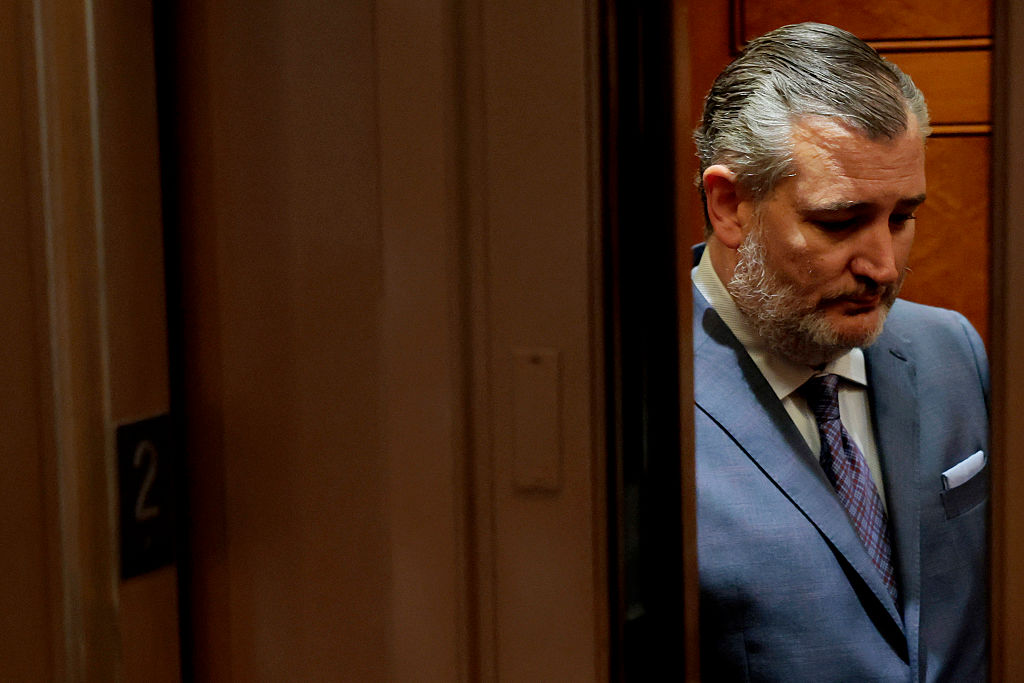Politics
FCC Chairman Suspends Kimmel’s Show, Sparks Political Debate

The Federal Communications Commission (FCC) is under scrutiny after its Chairman, Brendan Carr, suspended the late-night show Jimmy Kimmel Live! in response to a monologue where host Jimmy Kimmel criticized conservative activist Charlie Kirk. Carr labeled Kimmel’s remarks as “truly sick,” asserting that broadcasters must operate in the public interest. Following Carr’s directive, ABC affiliates removed the controversial segment from circulation.
This decision has reignited discussions about government involvement in media editorial choices. The suspension has raised alarms regarding the balance of power, particularly as it relates to free speech and the role of regulatory bodies in influencing content. The FCC, under the Trump administration, has faced increased pressure from political figures to reassess the licenses of networks perceived as biased.
Senator Ted Cruz has voiced his concerns about the potential ramifications of FCC censorship efforts. He cautioned that conservatives might eventually regret supporting such actions, arguing that using government authority to restrict commentary could create a dangerous precedent that chills political speech and satire. Cruz’s remarks highlight a broader concern among some lawmakers regarding the implications of government oversight on media expression.
The controversy extends beyond Kimmel’s show. Carr has suggested that ABC’s The View may not qualify as a “bona fide news program,” which could exempt it from equal-time regulations. This notion has raised eyebrows among media watchdogs, who worry about potential overreach and inconsistent enforcement of broadcasting standards. Critics argue that such actions blur the lines between regulation and censorship, particularly for programs that blend news, commentary, and satire.
The FCC’s intervention, combined with political pressure, could significantly alter the landscape of late-night programming and commentary shows. Media analysts are closely observing how this situation unfolds, as it presents critical questions about free speech, governmental influence, and the future of political satire in U.S. television.
As the debate continues, the implications of this incident may resonate far beyond the realm of entertainment, potentially shaping public discourse and the dynamics of political commentary. The intersection of media, politics, and regulation remains a contentious battleground, with all eyes on the FCC and its future decisions.
-

 Lifestyle4 months ago
Lifestyle4 months agoLibraries Challenge Rising E-Book Costs Amid Growing Demand
-

 Sports3 months ago
Sports3 months agoTyreek Hill Responds to Tua Tagovailoa’s Comments on Team Dynamics
-

 Sports3 months ago
Sports3 months agoLiverpool Secures Agreement to Sign Young Striker Will Wright
-

 Lifestyle3 months ago
Lifestyle3 months agoSave Your Split Tomatoes: Expert Tips for Gardeners
-

 Lifestyle3 months ago
Lifestyle3 months agoPrincess Beatrice’s Daughter Athena Joins Siblings at London Parade
-

 World3 months ago
World3 months agoWinter Storms Lash New South Wales with Snow, Flood Risks
-

 Science4 months ago
Science4 months agoTrump Administration Moves to Repeal Key Climate Regulation
-

 Science3 months ago
Science3 months agoSan Francisco Hosts Unique Contest to Identify “Performative Males”
-

 Business4 months ago
Business4 months agoSoFi Technologies Shares Slip 2% Following Insider Stock Sale
-

 Science4 months ago
Science4 months agoNew Tool Reveals Link Between Horse Coat Condition and Parasites
-

 Sports4 months ago
Sports4 months agoElon Musk Sculpture Travels From Utah to Yosemite National Park
-

 Science4 months ago
Science4 months agoNew Study Confirms Humans Transported Stonehenge Bluestones









